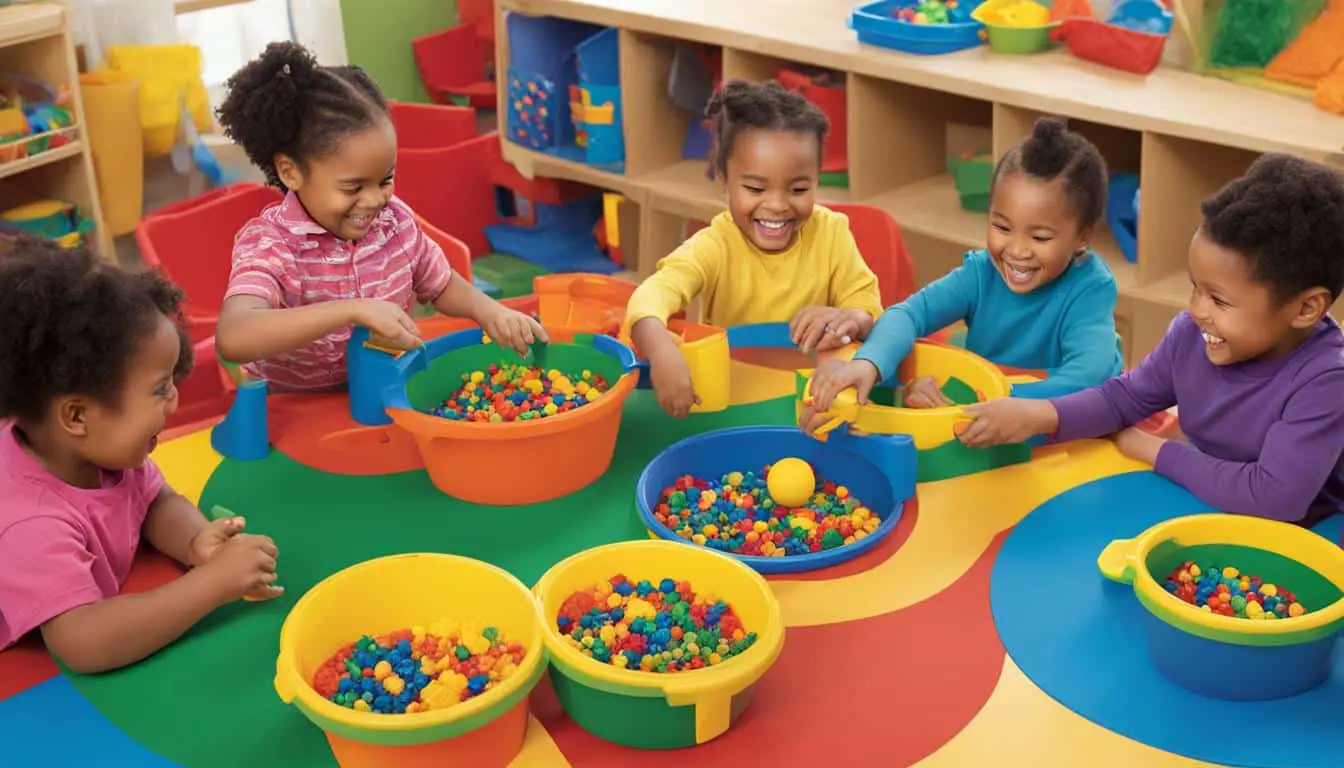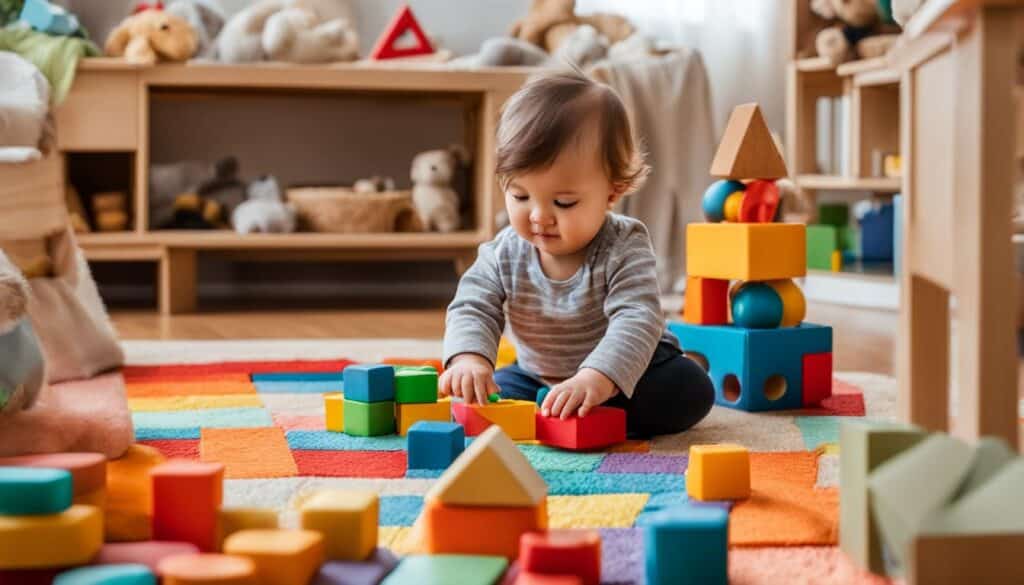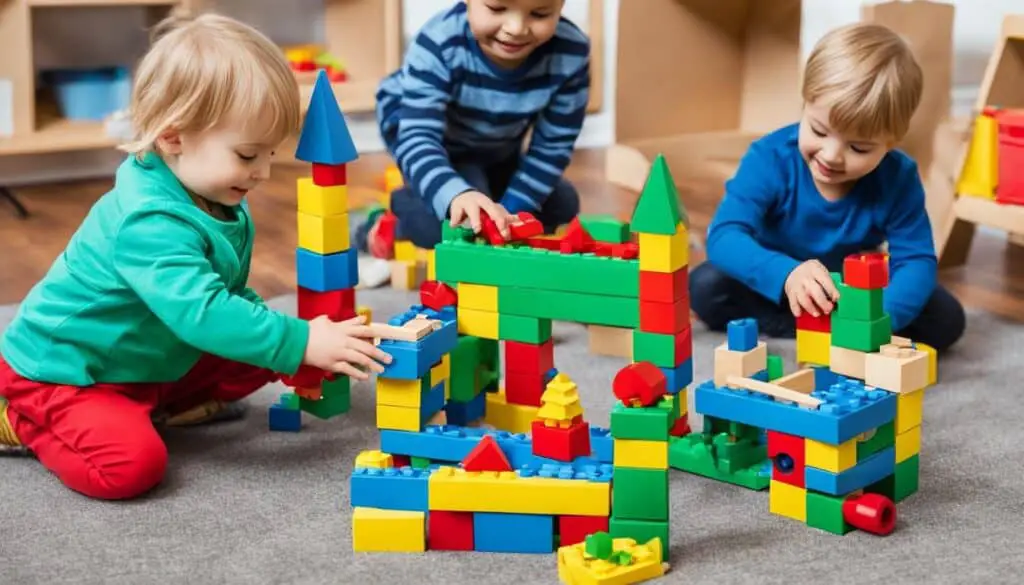
The Role of Play in Developmental Activities for Children: Fostering Growth Through Fun
Welcome, as a parent or educator, you’re familiar with the importance of encouraging growth and development in children and teenagers. Developmental activities play a crucial role in fostering physical, cognitive, social, and emotional skills in kids and teens, significantly impacting their overall well-being.
However, it’s essential to understand that not all activities are suitable for every age group. Age-appropriate activities are critical to providing a challenging yet enjoyable learning environment for children and teenagers.
In this article, we’ll explore various developmental activities suitable for different age groups, promoting their overall growth and development. From infants to school-aged children, we’ll provide ideas for effective developmental activities that will enable you to create fun and engaging learning opportunities for kids and teens.
Key Takeaways
- Developmental activities support physical, cognitive, social, and emotional growth in children and teenagers.
- Age-appropriate activities are necessary for creating a challenging yet enjoyable learning environment for kids and teens.
- Effective developmental activities enable parents and educators to create fun and engaging learning opportunities for kids and teens.
Developmental Activities for Infants (0-12 months)
Infancy is a critical time for growth and development. As a caregiver, providing your baby with age-appropriate developmental activities can help support their cognitive, motor, sensory, and social-emotional skills. Here are some engaging activities you can try with your little one:
Sensory Development:
Infants learn about the world through their senses. Encourage your baby’s sensory development with the following activities:
- Provide toys with different textures, such as soft blankets, crinkly toys, or rattles
- Sing and talk to your baby, allowing them to hear different sounds and rhythms
- Create a sensory bin with safe materials like rice or felt, allowing your baby to touch and explore different textures
Motor Skills:
As your baby grows, their motor skills will develop rapidly. Encourage their physical development with these fun activities:
- Lay your baby on their tummy to help strengthen their neck and back muscles
- Encourage reaching and grasping by placing toys within their reach
- Play with bubbles, encouraging your baby to reach and grab for them
Cognitive Growth:
Even at a young age, your baby is developing their cognitive skills. Here are some activities that can help stimulate their growing minds:
- Read books with simple, bright pictures and text to help your baby develop visual and language skills
- Play peek-a-boo, helping your baby understand object permanence and practice memory skills
- Show your baby cause-and-effect by playing with toys that light up or make noise when pressed
Social Interaction:
Your baby is learning about social interaction from the earliest days of life. Help encourage this development with the following activities:
- Talk to your baby, using simple words and phrases to help them learn language and understand communication
- Enjoy one-on-one playtime, making eye contact and responding to your baby’s actions and reactions
- Participate in a baby group, providing your baby with the opportunity to interact with other infants and learn from their experiences
Developmental Activities for Toddlers (1-3 years)
Toddlers aged 1-3 years are in a crucial stage of development, with rapid advancements in cognitive, physical, and social skills. As a result, it’s essential to provide them with appropriate developmental activities that enhance their growth and learning capabilities.
Here are some activities that can help:
- Sensory exploration: Toddlers are curious and love to explore their surroundings through their senses. Create a sensory bin with rice, sand, or water, and provide bowls, spoons, and cups for them to mix and pour. This activity can enhance their tactile and fine motor skills.
- Building blocks: Provide your toddler with soft or wooden blocks to stack or knock over. This activity can improve their hand-eye coordination and motor skills.
- Sing-alongs: Encourage your toddler to sing along to simple songs and rhymes, which can boost their language skills and confidence.
- Pretend play: Toddlers enjoy imitating their parents and caregivers. Provide them with props such as toy phones, dolls, and pretend food, and let them engage in imaginative play. This activity can enhance their creativity and social skills.
- Gross motor play: Toddlers have lots of energy and enjoy physical play. Set up an obstacle course with cushions, tunnels, and balls, or encourage them to dance to their favorite songs. This activity can improve their gross motor skills and physical development.
Remember to supervise your toddler during activities and provide them with a safe and secure environment to explore and learn.

Developmental Activities for Preschoolers (3-5 years)
Preschoolers have a natural curiosity and desire to learn. As such, it is important to provide them with activities that fuel their creativity and imagination while developing key skills. Here are some ideas for preschooler developmental activities:
Literacy and Numeracy
- Create a letter scavenger hunt around the house or classroom to help children learn the alphabet.
- Use counting games with fun props such as toys or snacks to teach numbers and basic arithmetic operations.
- Read stories aloud and encourage children to ask questions and discuss the themes and characters.
Creativity and Imagination
- Craft projects such as painting, drawing, or sculpting can offer a fun way to develop hand-eye coordination and encourage self-expression.
- Imaginative play with dress-up costumes, puppets or dolls can help children develop social skills and empathy.

Quote: “Play is often talked about as if it were a relief from serious learning. But for children, play is serious learning. Play really is the work of childhood.” – Fred Rogers.
Socialization
- Activities such as dancing, singing, and role-playing can help children develop social skills and confidence.
- Organize playdates or visit a local playground for opportunities to practice socializing with peers.
Problem-Solving
- Puzzles, mazes, and building blocks can help children develop problem-solving and critical thinking skills.
- Provide challenges like guessing what’s in a mystery box by touching it or playing I Spy using colors and shapes can also help trigger children’s curiosity and encourage them to come up with solutions.
Developmental Activities for School-Age Children (6-12 years)
As the school-age years are a critical time for children’s development, it’s important to engage them in activities that foster physical fitness, critical thinking, teamwork, self-confidence, and emotional intelligence. Below are some ideas for age-appropriate activities that help improve these skills:
| Activity | Description |
|---|---|
| Scavenger Hunts | Creating scavenger hunts can be a great way to enhance problem-solving abilities, teamwork, and physical activity. This activity can also be done indoors or outdoors, making it versatile and fun. |
| Board Games | Playing board games with kids is an excellent way to foster critical thinking and problem-solving skills. Games that require players to plan ahead, make decisions, and strategize are particularly helpful in developing these abilities. |
| Team Sports | Participating in team sports provides kids with opportunities to learn how to work with others, build relationships, and improve their physical fitness. Sports such as basketball, soccer, and volleyball are great options for school-age children. |
| Arts and Crafts | Encouraging children to engage in creative activities such as painting, drawing, and pottery helps develop their imagination and self-expression. Creative activities are also an excellent way of building self-confidence. |
| Journaling | Journaling is a therapeutic activity that helps build emotional intelligence and self-awareness in children. Kids can keep a daily journal and write about their thoughts, feelings, and experiences. |
These activities are just a few examples of the many options available for school-age children. Remember, finding activities that align with each child’s interests and abilities is crucial to promoting growth and development.
Conclusion
In conclusion, I hope this article has provided you with valuable insight into the importance of developmental activities for children of varying age groups. Remember that these activities play a crucial role in fostering growth and learning in children and teenagers. As parents, caregivers, and educators, it is essential to choose age-appropriate activities that cater to the specific needs and abilities of each child. By doing so, we can help support the holistic development of our children and encourage them to reach their full potential.
The Role of Play in Developmental Activities
Play is an essential component of childhood development. It serves as a fundamental way for children to learn, explore, and interact with their environment. Understanding the role of play in developmental activities can further enhance the growth and learning experiences of children across different age groups.
The Importance of Play
- Cognitive Development:
Play stimulates cognitive growth by encouraging problem-solving, critical thinking, and creativity. Engaging in activities such as building blocks or puzzles helps children develop their ability to think logically and strategically. - Physical Development:
Physical play, whether through sports or free outdoor activities, promotes gross motor skills and coordination. Activities like running, jumping, and climbing help strengthen muscles and improve overall physical health. - Social Skills:
Play often involves interaction with peers, which is crucial for developing social skills. Children learn to share, take turns, negotiate, and resolve conflicts during play, helping them build relationships and understand social dynamics. - Emotional Growth:
Through play, children can express their emotions and practice self-regulation. Engaging in role-play scenarios allows them to explore different feelings and develop empathy as they learn to understand perspectives beyond their own. - Language Skills:
Play provides an excellent opportunity for language development. Children often engage in conversations during play, expanding their vocabulary and improving their communication skills. Activities that involve storytelling or singing can further enhance language acquisition.
Types of Play and Their Benefits
Different types of play cater to various aspects of development:
- Free Play:
Unstructured playtime allows children to explore their interests and creativity. It fosters independence and decision-making skills, as children choose how to engage with their environment. - Structured Play:
Organized activities, such as sports or group games, provide structure and help develop teamwork and collaboration. These activities teach children the value of cooperation and following rules. - Imaginative Play:
Pretend play encourages creativity and imagination. Children often act out scenarios, which helps them process their experiences and understand social roles. - Physical Play:
Activities that involve movement, such as running, dancing, or climbing, promote physical fitness and coordination. They are crucial for developing gross motor skills and maintaining a healthy lifestyle. - Educational Play:
Interactive games and learning tools designed to teach specific skills (like math or reading) can make learning fun. These activities enhance cognitive skills while keeping children engaged and motivated.
FAQ
What are developmental activities?
Developmental activities are activities designed to promote and enhance the growth and development of individuals in various areas such as physical, cognitive, sensory, social, and emotional domains.
Why are age-appropriate activities important?
Age-appropriate activities are important because they consider a child’s developmental stage and abilities, ensuring that the activities are neither too challenging nor too easy. They provide the right level of stimulation and support for optimal learning and development.
What are some sensory development activities for infants?
Some sensory development activities for infants include tummy time, exploring different textures with their hands, listening to calming music or sounds, and playing with rattles or safe toys that engage their senses.
How can I support language skills in toddlers?
You can support language skills in toddlers by reading to them regularly, engaging in conversations, singing songs, playing simple word games, and introducing new vocabulary through daily interactions and experiences.
What are some creative activities for preschoolers?
Some creative activities for preschoolers include painting and drawing, storytelling and role-playing, building with blocks or playdough, engaging in pretend play and dress-up, and exploring various art and craft materials.
How can I encourage physical fitness in school-age children?
You can encourage physical fitness in school-age children by participating in outdoor activities such as biking, swimming, or playing sports. Additionally, encouraging regular physical exercise and limiting screen time can contribute to their overall fitness.
Why is it important to choose activities that align with specific age groups?
It is important to choose activities that align with specific age groups because each age group has unique developmental needs and abilities. Using age-appropriate activities ensures that children are engaged and challenged in a way that supports their growth and development.